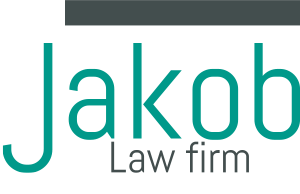Lawyer for Market Regulation and Product Liability
– Your Legally Compliant Entry into the EU Market
We advise companies and start-ups on import and export law – legally sound, practical and commercially focused.
The European Single Market offers enormous opportunities – but the legal path to entry is complex. Manufacturers and importers of machinery and technical equipment, in particular, face a range of legal challenges:
Common Issues When Entering the EU Market – Leading to Sales Bans and Significant Fines:
- Unclear Product Compliance: Which EU regulations apply to my product?
- Missing or Incorrect CE Marking: Risk of sales bans and fines.
- Incomplete Technical Documentation: Operating instructions, risk assessments, declarations of conformity, etc.
- Language Requirements: Obligation to provide manuals and safety instructions in the official language of the target country.
- Product Liability: Who is liable for damages – the manufacturer, importer or distributor?
- Non-compliance with Harmonised Standards: Risk of costly recalls or market withdrawals.
- Competitive Disadvantages Due to Legal Non-Compliance: Competitors may trigger legal warnings or file complaints.
Our Services – How We Support You
As a law firm specialised in import/export law, market regulation and product liability, we guide companies and start-ups through every stage of entering the EU market.
Our Solutions Include:
- Legal review of product compliance, including the Medical Devices Implementation Act (MPDG), Machinery Directive, Low Voltage Directive, EMC Directive, Product Safety Act (ProdSG), General Product Safety Regulation (GPSR), and more.
- Advice on correct CE marking and conformity assessment procedures.
- Drafting and reviewing technical documentation: user manuals, risk assessments, and more.
- Language and translation requirements in line with national obligations.
- Product liability advice and risk mitigation, including the Product Liability Act (ProdHaftG) and international liability aspects.
- Support in dealing with authorities, market surveillance procedures, and product recalls.
- Strategic advice for start-ups: legally compliant product development and documentation from day one.
Who Benefits From Our Expertise?
- Start-ups launching technical products in the EU for the first time
- Non-EU manufacturers seeking access to the European market
- Importers and distributors bringing machinery or devices from third countries
- Established companies introducing new product lines
Why Work With Us? – Your Advantages
- Specialist lawyers for market regulation and CE compliance
- Technical understanding through an interdisciplinary team
- Experience with international businesses and start-ups
- Fast, solution-oriented legal advice
- Practical documentation and clear action plans
Your contact person

Lawyer Inés Jakob
& Certified Dangerous Goods Safety Adviser
Please send us a short email with your request to:
Or arrange immediately a free, non-binding introductory meeting using the following link:
Please note that, as an international business law firm, we do not take on private client matters.
We welcome your enquiry and are happy to assist!
- What Is Market Regulation Law and Why Is It Relevant to My Product?
Market regulation law encompasses the legal requirements that products must meet when being placed on the European Single Market. This includes safety standards, technical specifications, CE marking, and documentation obligations.
Its purpose is to ensure that only EU-compliant and safe products are made available to consumers. For businesses, compliance is essential to avoid fines, sales bans or product recalls.
If a product fails to meet market regulation requirements, it cannot be cleared for import – meaning it must either be re-exported or destroyed.
- When Is CE Marking Required and How Do I Obtain It?
CE marking is legally required for most technical products, particularly machinery and equipment, and is harmonised across the EU. It indicates that the product complies with all relevant EU directives and regulations.
In most cases, the manufacturer is responsible for affixing the CE mark after completing a comprehensive conformity assessment procedure and preparing the required technical documentation.
Depending on the type of product, third-party testing bodies (notified bodies) may also be involved – for example, in the case of medical devices.
- Who Is Liable If a Product Causes Damage – the Manufacturer, Importer or Distributor?
Under the Product Liability Act (ProdHaftG), the manufacturer is generally held liable. However, if a product is imported from a non-EU country, the importer is legally considered a “quasi-manufacturer” and assumes full liability – even if they are not the actual producer.
Distributors may also be held liable, for example, in cases of improper storage or failure to provide adequate information to end customers.
- What Are the Consequences of Violating Market Regulation Law?
The consequences can be significant:
- Refusal of import clearance and destruction of goods
- Sales bans and mandatory product recalls ordered by authorities
- Substantial fines
- Legal warnings (cease and desist letters) from competitors
- Reputational damage in the marketplace
- Product liability claims in the event of damage
A legally compliant market entry is therefore essential – not only from a legal perspective, but also for the long-term commercial success of your business.



